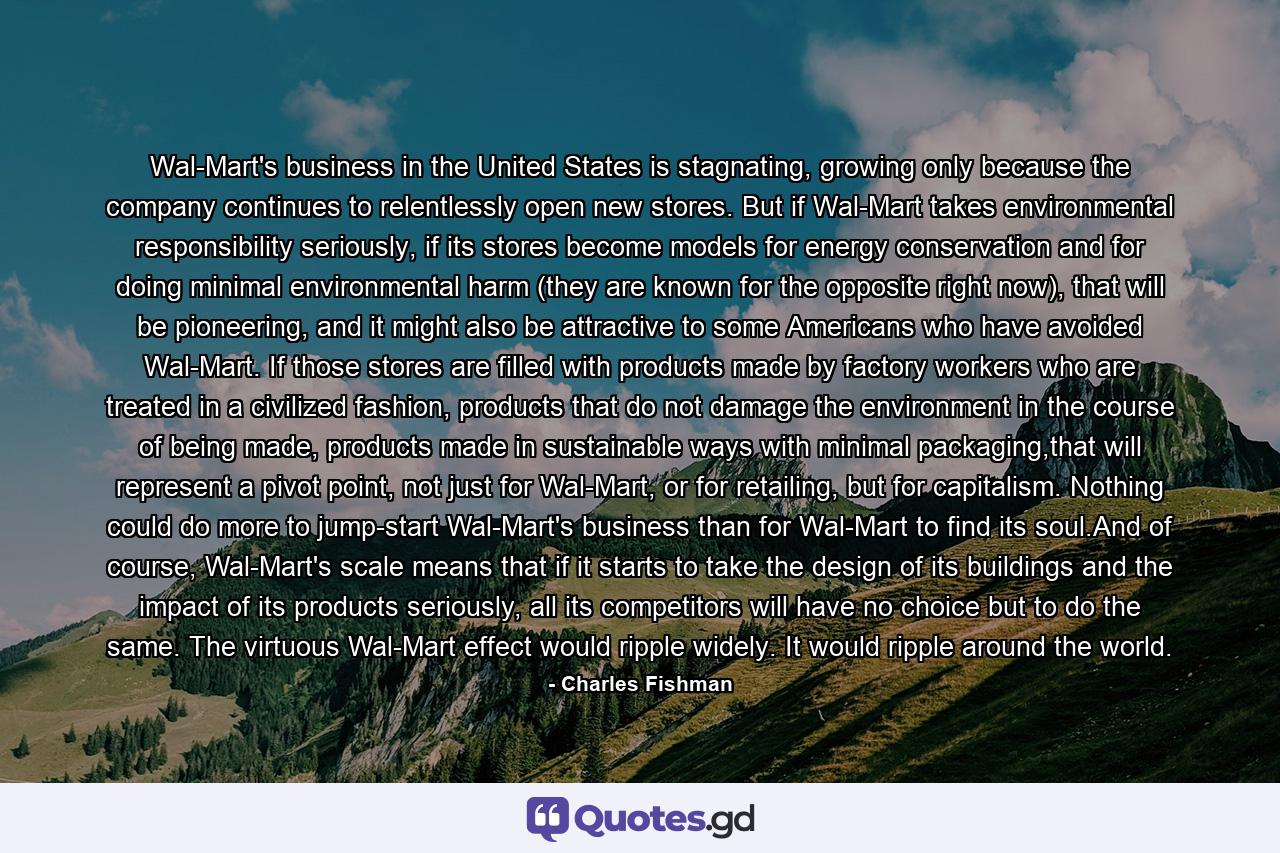Wal-Mart’s business in the United States is stagnating, growing only because the company continues to relentlessly open new stores. But if Wal-Mart takes environmental responsibility seriously, if its stores become models for energy conservation and for doing minimal environmental harm (they are known for the opposite right now), that will be pioneering, and it might also be attractive to some Americans who have avoided Wal-Mart. If those stores are filled with products made by factory workers who are treated in a civilized fashion, products that do not damage the environment in the course of being made, products made in sustainable ways with minimal packaging,that will represent a pivot point, not just for Wal-Mart, or for retailing, but for capitalism. Nothing could do more to jump-start Wal-Mart’s business than for Wal-Mart to find its soul.And of course, Wal-Mart’s scale means that if it starts to take the design of its buildings and the impact of its products seriously, all its competitors will have no choice but to do the same. The virtuous Wal-Mart effect would ripple widely. It would ripple around the world.
